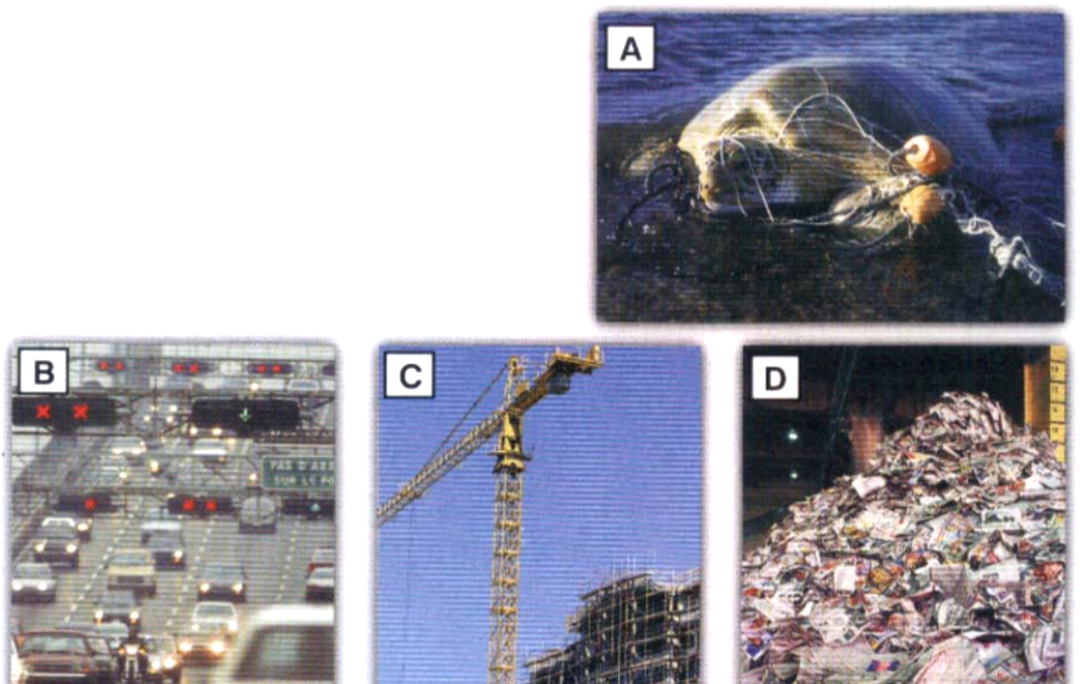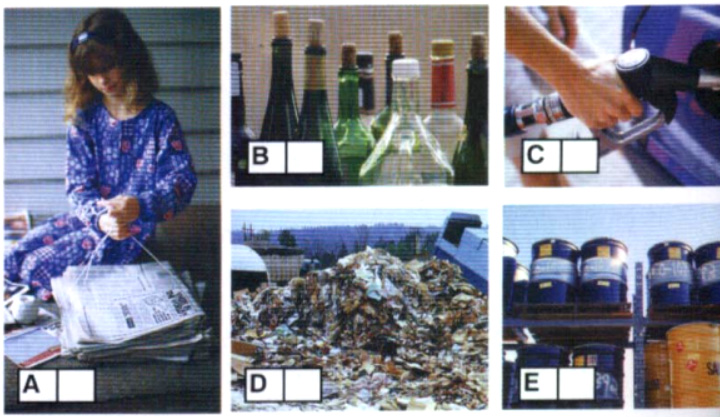1. Match the speakers to what each one would do if he/she was leader of his/her country. Write R for Roberta, M for Maria or J for James.
1 stop logging companies from destroying the rainforest
2 not allow hunters to kill endangered species
3 ban cars
4 creates special parks
5 improve public transport
6 make logging companies plant new trees
Answer & Audioscript
1 M 2 J 3 R 4 J 5 R 6 M
Audioscript
1 Roberta – Italy
If I were leader of my country, I would ban cars because they cause too much air pollution. I hate it when I’m riding my bike in the street and I can hardly breathe because of the traffic fumes. It makes me feel really ill. Air pollution causes acid rain, too, which skills trees and plants. I would also improve public transport. People wouldn’t need to use their cars so much then. I think people should walk more often, or use a bicycle, like me! If they did, our cities would be healthier places to live in.
2 James – Kenya
If I were the leader of my country, I wouldn’t allow hunters to kill endangered species. Did you know that animals such as tigers and rhinos have been hunted so much that there will soon be none left? I think we need to teach hunters that it’s wrong to kill these animals. I would also create special parks where these animals could live safely.
3 Maria – Brazil
If I were the leader of my country, I would stop logging companies from destroying the rainforest. It’s terrible the way that animals and rare plants die when the trees disappear. Don’t these companies know that they’re not just destroying the trees and the wildlife? They could destroy us all! Trees produce oxygen, which is one of our most basic needs. One answer to the problem is to make the logging companies plant new trees. If they did that, it could save the rainforest and give all of us cleaner air to breathe.
2. You will hear four people talking about environmental problems and solutions. Match the speakers (1-4) to the pictures (A-D). There is one extra picture that you do not need.

Answer & Audioscript
1 C 2 A 3 B 4 D
Audioscript
Speaker 1: I think cars cause more pollution than anything else. For one thing, there are far too many of them on the roads. Cars need petrol, and it’s the petrol that pollutes the air. This causes acid rain and all kinds of other problems. If I had my way. I’d ban cars from cities – or at least make them run on electricity, not petrol.
Speaker 2: We’ve started a recycling project at school. We all take in old newspapers and things, to be recycled. Our school gets money for them, and they use the money to buy us more computers. I really enjoy collecting all our old papers and magazines. It helps the environment, and it’s fun, too!
Speaker 3: I’m trying to encourage my family to recycle more often. I think it’s working. For instance, last week my parents had a big party because they’ve been married for 25 years. Anyway, I told them not to throw away any of the empty bottles from the party, and we collected them all in a box. There were lots of them – all different colours and sizes. Dad’s going to take them to the bottle bank tonight.
Speaker 4: Have you seen that rubbish dump on the edge of town? It’s a terrible problem! It looks horrible and it smells really bad. I’m sure it must be causing a lot of air pollution. Why can’t they do something about it? You know, if people didn’t throw away so many things, we wouldn’t have this problem.
3. Listen and correct the words in bold.
1 We all need water – not just for our gardens and factories, but to survive.
2 The problem begins at home.
3 Governments can help by passing laws to stop animals from wasting and polluting water.
4 Many cities have successfully wasted water by repairing pipes.
Answer & Audioscript
1 homes 2 solution 3 factories 4 saved
Audioscript
Water, water everywhere …
Imagine a world with no drinking water, and no water to wash or cook with. It’s hard to imagine this, because we use water every day without even thinking about it. Yet there are terrible water shortages all over the world. In parts of Africa and China, for example, many people don’t even have clean water to drink. In fact, over half of the people in the world have to live with water shortages every day. We all need water – not just for our homes and factories, but to survive. Fortunately, there are things that we can all do to save water.
The solution begins at home. We can save the water from our baths and use it for the garden, instead of wasting hundreds of litres of clean water on our lawns and plants. This would help to save many litres of water everyday, especially in the summer.
Governments can help by passing laws to stop factories from wasting and polluting water. If factories recycled water and stopped pouring chemicals into our lakes and rivers, there would be a lot more clean water around.
Governments could also stop water companies from wasting millions of litres of water because of leaking pipes. Many cities have successfully saved water by repairing pipes.
All in all, there are many things we can do to save our planet’s disappearing water supplies. The time has come to start understanding the value of water, before a world without clean water becomes a terrible reality.
4. a) Look at the pictures. Listen, then say which picture is not mentioned.

b) Read the suggestions and match them to the results, then make sentences, as in the example.
suggestions
put bins on every street corner
have more trees/green areas
improve public transport
people use bicycles
people recycle things
create more parks
results
people have more oxygen
not be so much rubbish everywhere
people not drop litter in streets
people leave cars at home
children be able to play safely
cities be less polluted
If the authorities put rubbish bins on every street corner, people wouldn’t drop litter in the streets.
Answer & Audioscript
a) Picture A is not mentioned
b) Suggested answers
If cities had more trees and green areas, people would have more oxygen.
If authorities improved public transport, people would leave their cars at home.
If people used bicycles, our cities would be less polluted.
If people recycled things, there wouldn’t be so much rubbish everywhere.
If the authorities created more parks, children would be able to play safely.
Audioscript
Narrator: Most of the world’s cities are dirty and polluted places because people don’t take care of them. One of the main problems is the terrible traffic, which causes air pollution. Another big problem is the amount of litter on the streets. In my opinion, there are also too many buildings and not enough green areas in our cities.
To begin with, I think that people should stop using their cars so often. If governments improved public transport, more people would leave their cars at home. People should also use bicycles to get to work. This would reduce the number of cars on the road, and our cities would be less polluted.
Litter is a big problem in many cities. If the authorities put bins on every street corner, perhaps people wouldn’t throw their rubbish everywhere. If people recycled things, then there wouldn’t be so much rubbish around. These changes would reduce pollution and make our cities cleaner places to live in.
Finally, I think governments should stop building so many houses and offices. If there were more trees and green areas in our cities, people would have more oxygen, and if we had more parks, children would be able to play more safely. The result would be a more pleasant environment which would help everyone to relax.
In general, governments ought to plan cities more carefully. There should be better public transport and rubbish collection, as well as more parks and other green areas. These solutions would make our cities more environmentally friendly and healthier places to live in.
Related Posts
- Practice Listening English Exercises for A1 – Travel
- Practice Listening English Exercises for A1 – Entertainment (2)
- Practice Listening English Exercises for A1 – Communication
- Practice Listening English Exercises for A1 – Clothes and shopping
- Practice Listening English Exercises for A1 – Fit and healthy
- Practice Listening English Exercises for A1 – Journeys (2)
